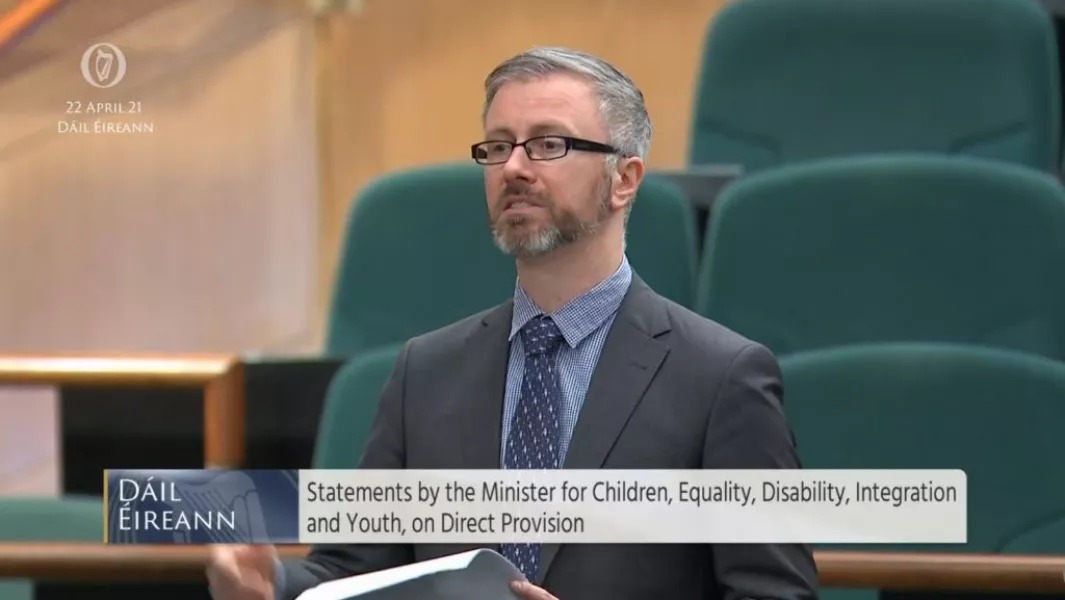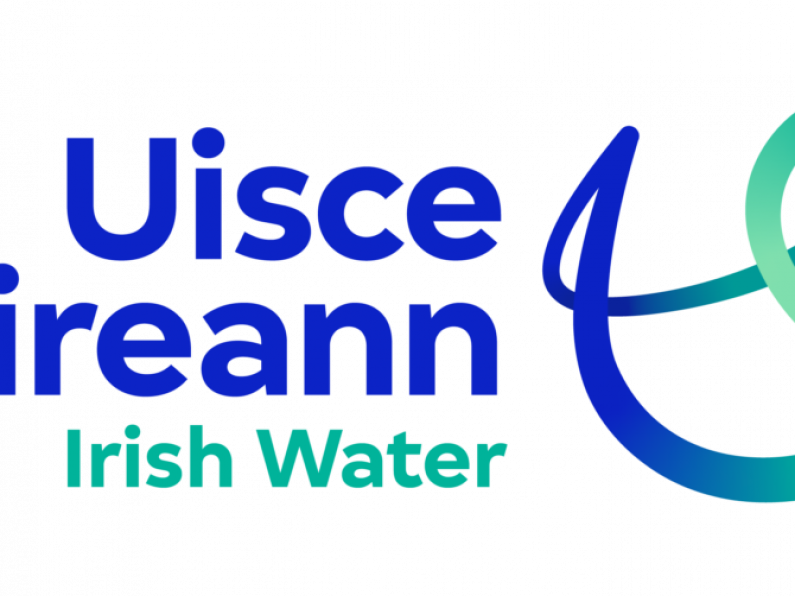
By Cate McCurry, PA
The Minister for Children has warned of groups which exploit genuine concerns about Direct Provision to “peddle racism and discrimination”.
Roderic O’Gorman said these groups and individuals seek to “sow hatred and division” in Irish society.
He made the comments in the Dáil as he gave an update on the Government’s plan to end Direct Provision.
The system, set up more than 20 years ago, provides accommodation centres for asylum seekers and is run by for-profit companies.
We have enough compassion, humanity, and enough political will to support those who come here seeking protection.
The Irish public want to see an end to Direct Provision, and see those who come here seeking protection receive better support. Our White Paper commits us to that. pic.twitter.com/LQjyeNAUOH— Roderic O’Gorman TD (@rodericogorman) April 22, 2021
It has been heavily criticised by organisations including the UN, Amnesty International and the Council of Europe in that time.
Successive governments have faced calls to dismantle the system, which currently caters for 7,000 people.
In February, the Government published its White Paper to replace the centres with an international protection system by 2024.
It will allow asylum seekers, referred to as international protection applicants, to live in and be part of communities.
Mr O’Gorman warned of those who take advantage of people’s concerns about the system.
“Alongside the campaign to end Direct Provision, we have seen local support groups grow to assist people in the process in practical and thoughtful ways welcoming new arrivals into the communities,” he added.
This key role of putting the humanity and rights of people at the core of our approach is best done by having the community and voluntary sector centrally involved. Simply because the people in the community and voluntary sector do this best. pic.twitter.com/2qNuP4rm0F
— Joe O'Brien TD for Dublin Fingal (@joefingalgreen) April 22, 2021
“At a time when politics is mired in anti-migrant and xenophobic dogma, in our country the push to end Direct Provision has become louder.
“There isn’t a deputy in this House who hasn’t received emails or phone calls on this issue.
“We can be under no illusion that there are groups and individuals who seek to sow hatred, seek to sow division in our society.
“These groups use information and they play on people’s well-meaning concerns to peddle racism and peddle discrimination.
“They seek to play marginalised groups off each other and it’s a mean-minded argument. It is one that is closed, it is unfriendly and is one that is filled with suspicion.
“It is up to every deputy to reject this policy and this politics of division. We have enough political will to support those in need and those who are vulnerable.
“We address concerns that come, but we address them in a responsible manner, we don’t make politics out of hostility, we appeal to the better nature of Irish people who we all know are charitable and kind.”
The new system will be divided into two phases.
Phase 1 will identify the needs of individual applicants who will stay in “integration centres” for no more than four months, where they will have access to healthcare, education and “employment and language support”.
Phase 2 offers community-based accommodation for those still awaiting a decision on their application.

The accommodation will be managed by approved housing bodies.
Joe O’Brien, Minister of State for Community Development and Charities, said: “Community integration is at the heart of the new model. Instead of living separately from communities in large congregated settings, often in isolated locations, applicants will live in houses and apartments in towns and cities around the country.
“Integration from day one is a key principle of the new policy. The approach used by the Irish Refugee Protection Programme to co-ordinate refugee integration under the leadership of local authorities will be our guide.
“Such an approach ensures that service providers can plan for the arrival and needs of applicants and families mobilise C&V integration supports.
“NGOs will be contracted to provide integration workers to act as integration caseworkers for applicants with lower support needs.”
Sinn Fein’s Kathleen Funchion said children and young people have faced particular difficulties.
“They have been very much isolated from their communities and have been left in a state of limbo, in some cases for their entire childhoods,” Ms Funchion added.
“There are many young people who have used their voices to raise the serious faults of the system. They are engaged and want to be involved in the system.”
"There is a whole cohort of children in direct provision who are only able to exercise their right to education because of the kindness of communities and school staff," @HollyCairnsTD tells #Dáil
"Inequality of access to further and higher education is pervasive." pic.twitter.com/ymQGP9MiBJ— Social Democrats (@SocDems) April 22, 2021
A report on the system, led by Dr Catherine Day, gave recommendations to the Department of Children.
Labour’s Sean Sherlock said he welcomes the Government’s White Paper, but it is “marginally less ambitious” than Dr Day’s report.
Social Democrats Hollie Cairns said: “A state that is unwilling to learn from its past continues to institutionalise vulnerable people and somehow devise new ways to erode dignity.
“Meagre allowances and limited access to work, regimented diets and few cooking facilities, cramped accommodation and isolated centres.
“We all welcome your plans and support them to end the system, but in reality we still are looking at years of families trapped inside direct provision.”













